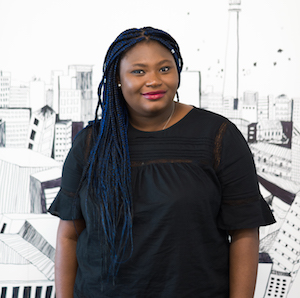Throughout history, after every global crisis such as the one we’re experiencing, a new era of thinking and living begins. How we shop, learn and play has evolved, with some changes brought on by the pandemic, and others brought on by technology’s acceleration.
We’ve rounded up interesting insights from industry executives around new transformations, experiences and offerings in their respective sectors over the past year.
Tapping is here to stay ~ Murray Gardiner, CEO of Bluecode Africa

Across the continent, cash has always been preferred for cultural reasons of trust and convenience of exchange. That’s understandable. Cash is easy to understand. You hand over a set amount and get the good or service you desire. It’s also so culturally entrenched that it doesn’t require learning new behaviours.
However, in light of the way the Covid-19 virus spreads, the pandemic has accelerated a process that was already underway: a general move towards digital mobile payments and e-commerce, driven by a desire to minimise physical interaction at the point of sale. But cash is still everywhere, and cards are a well-entrenched incumbent. That said, cash is costly and opaque while cards have costs and limitations that hinder financial inclusion for small, medium and micro enterprises (SMMEs). Neither can offer the access and digital transparency that an account-based digital mobile payment can provide.
Consumers need more options with digital mobile payments, like Bluecode, that are not only fast and efficient but secure customer data and privacy. Bluecode never sees customer data and this provides consumers with new secure ways of paying from any account-based funding source like a bank account, loyalty points plan, prepaid gift cards, or with funds in a non-bank financial institution. This benefit is tightly aligned with the SMMEs who can benefit from the upside of digital transparency – which provides for deeper and better-quality formal banking arrangements.
Take virtual breaks ~ Mich Atagana, South Africa head of communications and public affairs at Google

With the tourism sector among those hardest hit by the global Covid-19 pandemic, and with people tired of lockdowns and yearning for new and exciting travel experiences, they’re increasingly turning to virtual experiences until the real thing becomes possible once again.
Google Arts & Culture joined forces with SA Tourism to announce the launch of an online exhibition South Africa: An Explorer’s Paradise. The experience allows visitors from all over the world to explore South Africa’s heritage and “visit” its breathtaking destinations, through a collection of 500 images and videos, 55 Street Views and 20 exhibits. To experience South Africa and explore its beauty from the comfort of your own home, visit g.co/sharesouthafrica, or download the Android or iOS Google Arts & Culture app.
Take note of sensory surveillance and smart devices ~ Andrew Bourne, Region Manager, Africa, Zoho Corporation

Most people and households boast a multitude of smart devices, which bring a large measure of convenience to our daily routine and also enhance our experience with the simple pleasures in life like music and movies. However, convenience comes at a cost. By adopting these new technologies, we might be exposing ourselves to new forms of surveillance. Beyond the simple web tracking that we have accustomed ourselves to, smart devices could result in a whole new range of surveillance forms which extract data about us through the multi-sensory techniques available in these devices.
Called sensory surveillance, it refers to the sensors embedded in smart devices, which allow companies to collect data about your vision, smell, hearing, tastes, and even mood—all without you knowing it. This has major implications for public data privacy and security.
Most of us buy smart devices for the innovation and convenience they promise, without giving much thought to how these gadgets handle data security and privacy. The camera in our smart doorbell or lock can, for instance, provide data about when we are home, when our mail is delivered, and even whether we have a dog. Most devices also have built-in microphones which record the sounds and conversations that take place in your home.
Meanwhile, other products and services (such as a smart fridge or favourite streaming service) can pick up on our other sensory preferences like tastes and moods. A simple monitoring of, say, the movies we watch (TVs send a screenshot of what you watch back to their servers), the music we listen to, and the websites we visit provides data aggregators a trove of information that has huge potential as a monetisable asset. When combined with other sensory information like our eating habits for instance, this data paints a fairly clear picture of our mood and even helps companies predict how we feel and what we might eat based on what we’re watching.
It pays to be aware of how pervasive technological surveillance is and the impact it can have on our lives online. We might not notice how much data we’re giving up now because sensory surveillance might still be in its infancy, but the impact will prove more significant over time.
Book gardeners and more online ~ Aisha Pandor, SweepSouth co-founder and CEO

During the first stages of lockdown last year, our home-cleaning service was unable to operate. It was a challenging situation, but we used the time to work on extending our on-demand home services – booked through our online platform – to outdoor services such as gardeners, electricians, handymen, painters and more.
We also decided to broaden our SweepSouth Connect platform, which offers a professional listing service, to offer a wider variety of freelance services, from web developers to tax and accountancy services and graphic designers. Connect got AI enhancements, too, and now features an in-app in-house-built chat and bot capability that allows customers to connect directly with professionals. It’s also interfaced with an image recognition feature that allows users to take a picture of a household area or broken item so that, using artificial intelligence technology, the system can identify which service professional a user would require to help fix the problem.














